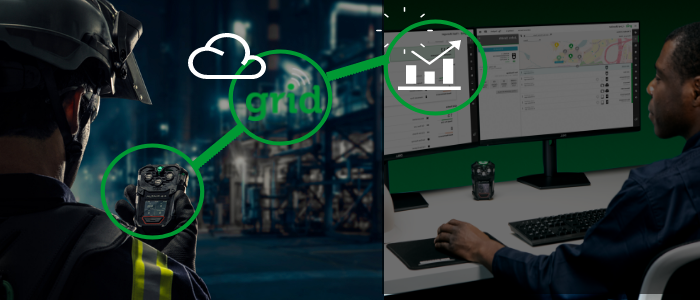
Here’s a look at new technologies that are driving the transformation of safety in 2022.
The concept of workplace safety dates backs to the 18th century during the start of the Industrial Revolution. Safety has come a long way since then, thanks to the introduction of safety standards, personal protective equipment (PPE), and, most recently, new technologies.
Not only has safety dramatically evolved from its early days, decades’ worth of advancements have made it far easier for companies to ensure safe, healthy work environments. That’s a good thing, of course, since safety is a top priority for organizations that want to achieve operational success and profitability.
In fact, that’s where technology really shines, empowering today’s safety professionals to be more proactive than ever before. Like all technologies, safety-related technologies are moving fast, too.
To bring you up to speed, we’re drawing upon our 100+-year history as global safety experts to bring you our picks for the most relevant trends and best practices that will have the greatest impact on safety initiatives, for organizations that want to develop a next-level safety program.
Trend 1: Integrated connectivity and cutting-edge wearables
Taking action when seconds count. That’s one of the most known topics in worker safety. For organizations with personnel working remotely, in the field, and across multiple locations, a standalone gas safety unit does little more than alert the wearer when there’s a problem.
To keep people safer no matter where they – or their supervisors – are located, organizations need to be able to connect workers to safety teams. That’s what is behind this first trend: combining a cloud-connected safety solution with smart devices to alert both supervisors, and workers to potential dangers.
Organizations can leverage technology in the form of connected and trusted wearables to keep their people and places safe. The most advanced wearables feature built-in CAT-M LTE cellular connectivity and deploy right out of the box in seconds. No waiting. No IT required.
Even better, cutting-edge wearables designed with fully integrated connectivity give off-site safety managers real-time visibility into critical data points to keep on-site workers safe.
Real-World Application:
Use the new ALTAIR io 4 Gas Detection Wearable and the MSA Grid Software to have real-time visibility when time seconds count. Featuring rapid response MSA XCell® sensors, workers are alerted to threats twice as fast as the industry average.
Trend 2: Connectivity that provides data and analytics- allowing insights for improved safety outcomes
Data analytics is important to a safety program, because it defines how data is gathered, evaluated and even presented to drive awareness and inspire action.
It not only helps you ensure compliance, but it also helps you spot behaviors and trends that can directly impact safety outcomes.
A solution like MSA’s Grid cloud-based services combines and distills data down into digestible chunks, helping safety professionals stay on top of their resources in the field in real-time. In addition, Grid services’ intuitive design makes it easy to visualize and understand critical safety-related insights, putting safety professionals more in control of their gas detection program.
Real-World Application:
The MSA Grid Fleet Manager enables data processing and recordkeeping, allowing you to have visibility across your gas detection program, so you can be proactive and take action to improve your safety program.
Trend 3: A behavioral-based, data-informed safety culture
Every world-class safety program is marked by the need to continuously improve and maintain a focus on safety. Frankly, that’s easier said than done. In today’s modern world, that can be especially challenging for safety professionals, particularly when they have multiple distractions and disruptions coming at them all day, every day.
It was this need to minimize interruptions and improve safety outcomes that fueled this final trend: building and supporting a proactive, accountability-based, data-informed safety culture.
Smart, wearable device hardware combined with technologically advanced software can deliver critical data to enhance site safety and support operational efficiency. MSA+ is a comprehensive subscription program that integrates hardware technology with cloud-based software and safety program management services. It helps to promote collaboration, boost operational efficiency and to improve worker accountability, and does it all without expensive, upfront costs.
Real-World Application:
Using real-time data from the MSA Grid Live Monitor, have awareness and full visibility on exposures- and respond to incidents. With connectivity-enabled real-time data, you can have continuous situational awareness. That means seeing the state of workers and monitoring their safety behaviors in the field.
Improving Your Safety Outcomes
Adopting any one of these trends would be a great start toward improving safety outcomes. Even better would be to embrace all three trends. Combined, these top technology trends give organizations a clear and better path toward a transformative, next-generation safety program.
MSA has already done it. We’ve combined all three trends into the MSA Connected Work Platform, driven by the ALTAIR io™ 4 Gas Detection Wearable. This user-friendly solution can is helping organizations of all types all around the world simplify safety, curb risk, and boost productivity. Contact us to learn how this first-of-its-kind solution can help you create a more adaptable, proactive safety program.